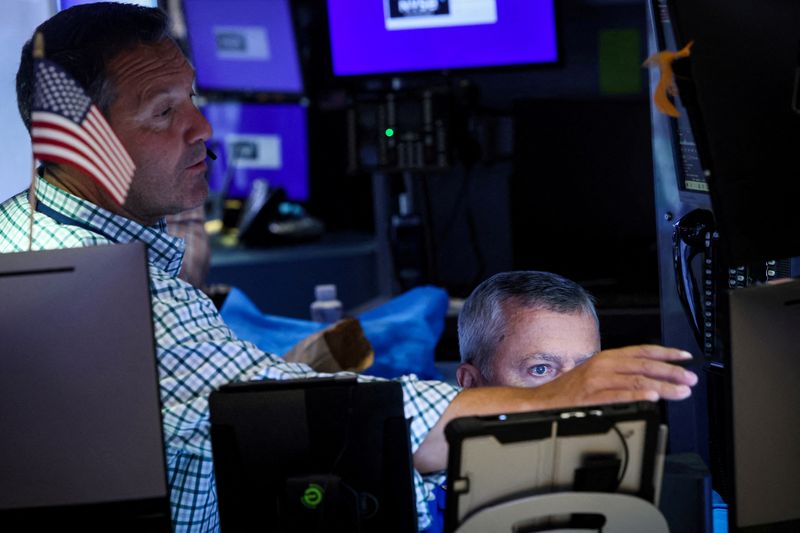By Laura Matthews and Tom Westbrook
NEW YORK/SINGAPORE (Reuters) - Politics has toppled global markets from record peaks and over a turbulent few weeks stepped to the fore as investors confront the prospect of an increasingly fractious Europe, isolationist America and a slowdown in the pulse of world trade.
Geopolitics topped the risk list of sovereign money managers this year and, after a roaring rally, money is rushing out of potential flashpoints - such as Taiwan's stock market - and into havens such as gold, which hit an all-time high last week.
The line of thinking is that a period of peace and free trade is finished and the next one looks less profitable.
Nearly half the globe votes this year and results so far underpin the shift in mood: Taiwan elected a president detested in Beijing, voters lurched to the right in France and installed the largest left-wing majority in Britain for a generation.
Over just eight days, the U.S. campaign trail created shock waves: frontrunner Donald Trump was grazed by a bullet and Joe Biden quit with less than four months to go until polling day.
Markets are tuning in and the news has pulled geopolitical concerns to the front of investors' minds.
"It is definitely one of the more important considerations we have been working into our process all year," said Erik Knutzen, multi-asset chief investment officer at Neuberger Berman, which manages $481 billion in assets.
"The high-level way that that is being manifested is by assessing our overall portfolio risk levels," he said.
"An environment of elevated geopolitical risk would lead you to turn that risk dial down."
That has already been evident in prices as markets immediately focus on two potential pitfalls likely to be heightened by a Trump victory: inflation and restrictions or disruptions to semiconductor sales, particularly for Taiwan.
Gold, considered an inflation hedge and a beneficiary of demand from central banks in a climate of mistrust, shot to a record high above $2,450 an ounce in the days after the attempt on Trump's life, an event that has galvanised his supporters.
"All of Trump's policies are likely to be inflationary - be it tax cuts, immigration, or re-shoring, and hence dollar bearish...so the dollar is likely to depreciate against gold," said Prashant Kothaari, CEO at Alpha Alternatives.
At the same time more than $100 billion has been wiped from the market value of Taiwan Semiconductor Manufacturing Co in less than a week after Trump sounded equivocal about his commitment to Taiwan's protection and chip industry.
Goldman Sachs (NYSE:GS)' cross-strait risk indicator, which analyses news, is below peaks but has rebounded over the past week.
Taiwan's currency slumped to its lowest in more than eight years on Monday as investors fled the island which is at the forefront of chipmaking technology and the front line of U.S.-China tension.
"The return of this geopolitical risk has effectively blunted enthusiasm for the AI hardware trade," said Norman Villamin, chief strategist at Union Bancaire Privée.
TAIL RISK
As money managers have become more certain of U.S. rate cuts in September and of a Republican White House, geopolitical concerns are seeping in to longer-term thinking about the globe's economic potential and risks building in the background.
High interest rates are starting to bite and China's growth is slowing. There are wars in the Middle East and the fringe of Europe where major powers are lined up on opposite sides.
"We see tensions remaining high and stemming policy consequences that will likely last the decade," said David Bianco, Americas chief investment officer at DWS.
He mentioned energy and defence stocks and commodities including copper and uranium as being on the investing radar.
French stocks have lagged Europe and sovereign debt hit its steepest discount on Germany in a dozen years on concerns a divided government will be euro-sceptic and struggle to repair the balance sheet.
"We are underweight on France and Italian bonds as we think there will be political noise as they negotiate a lower budget deficit," said David Zahn, head of European fixed income at Franklin Templeton.
To be sure, there is no sense of panic in the selling which has pushed the S&P 500 only some 3% from an all-time high, something many market participants see as a healthy pullback - rather a re-consideration of how to trade political risks.
For now U.S. equities volatility, measured by the VIX index, is rising but low by historical standards and, as of early last week, there have been no dramatic flows into so called "tail-risk funds" designed to profit in a downturn.
"Geopolitics is never the main focus of financial markets, which particularly for the equity market is always on interest rates and earnings growth," said Matt Sherwood, head of multi- asset investment strategy at Perpetual in Sydney.
"But geopolitics is one of those issues that if it's triggered it can be a large left tail event," he said. "And so what an investor would need is a low-cost diversification strategy, which gives downside protection and upside potential."
Presently, six-month options on wild moves in the market, such as a big drop in stocks or sudden shift in the dollar trade cheaply, suggesting they are unwanted.
But there has been some recent buying and - as the lacklustre performance of Chinese equities attests - an ebbing in the optimism that has driven returns in previous cycles.
Pankaj Agarwal, a portfolio manager at Singapore-based family office AT Capital, is hedging his bets by reducing cash equity exposures and buying call spreads on the index, a strategy which can cap gains but limit losses. Others are re-calibrating expectations for a more miserly future.

"For thirty years, investors have benefitted from the greatest era of globalisation and geopolitical stability the world has seen," said Michael Rosen, chief investment officer of Angeles Investments in Santa Monica.
"A new, riskier era has begun."